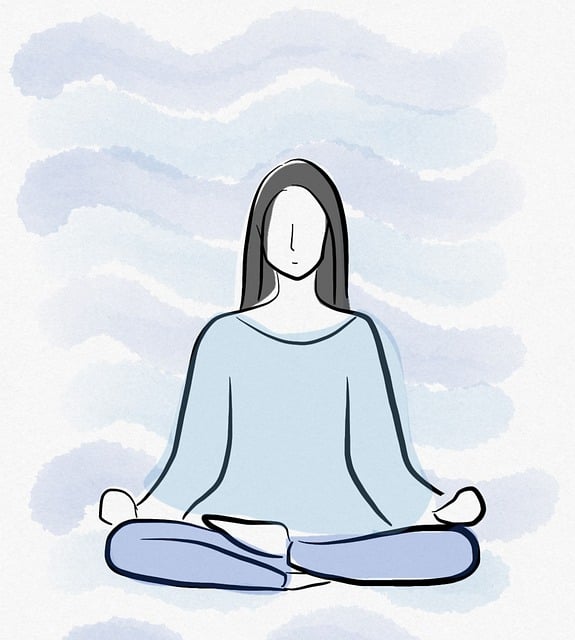Are you struggling to find inspiration for your next writing project? Writer’s block can be a frustrating obstacle, leaving you feeling stuck and unable to unleash your creativity. But fear not! In this article, we will explore innovative approaches to overcome writer’s block and reignite your passion for writing. Whether you’re a novelist, a blogger, a student, or just someone who enjoys putting pen to paper, these fresh ideas will help you break through the barriers hindering your creativity. So, let’s dive in and discover new strategies to conquer writer’s block once and for all!
Contents
- Identifying the Causes of Writer’s Block: Understanding the Mental and Emotional Factors at Play
- Unlock Your Creativity: Strategies to Stimulate Idea Generation and Inspiration
- Breaking Down the Writing Process: Effective Planning and Organization Techniques
- Shake up Your Routine: Unconventional Methods to Overcome Writer’s Block
- Exploring Alternative Creative Outlets: Using Art, Music, and Other Mediums to Spark Imagination
- Embracing Mindfulness: Techniques to Enhance Focus and Reduce Stress while Writing
- Boost Your Writing Performance with Mindfulness Techniques
- Collaboration and Networking: Leveraging the Power of Others to Bust Through Writer’s Block
- Harnessing the Power of Technology: Writing Tools and Apps to Boost Productivity and Beat Writer’s Block
- Frequently Asked Questions
- The Way Forward
Identifying the Causes of Writer’s Block: Understanding the Mental and Emotional Factors at Play
Writer’s block is a common struggle that many writers face at some point in their creative journey. While it may seem frustrating and insurmountable, understanding the mental and emotional factors at play can help to identify the root causes of this creative hurdle. By recognizing and addressing these factors, writers can work towards overcoming writer’s block and rediscovering their creative flow.
One of the main mental factors contributing to writer’s block is self-doubt. Writers often question their abilities, judge their work too harshly, or fear criticism from others. This self-sabotaging mindset can stifle creativity and halt the writing process. Additionally, perfectionism can play a significant role in causing writer’s block. The pressure to produce flawless work can be overwhelming, leading to feelings of frustration and ultimately, creative paralysis.
- Self-doubt
- Perfectionism
- Comparison with others
Emotional factors can also greatly impact a writer’s ability to get words down on paper. Stress, anxiety, and fear can create mental blocks that make it difficult to focus and find inspiration. Past negative experiences or traumas related to writing can also contribute to a writer’s block. It’s important to address and process these emotions to prevent them from hindering creative expression.
In summary, understanding the mental and emotional factors that contribute to writer’s block is essential for overcoming this creative hurdle. By recognizing and addressing self-doubt, perfectionism, and other emotional barriers, writers can take steps towards reclaiming their creative flow and unleashing their full writing potential.
Unlock Your Creativity: Strategies to Stimulate Idea Generation and Inspiration
Are you feeling stuck in a creative rut? Don’t worry, we’ve got just the thing to help you unlock your creativity and get those ideas flowing again. Here are some proven strategies to stimulate idea generation and inspire your creative thinking.
- Embrace curiosity: Curiosity is the fuel that drives creativity. So, don’t be afraid to ask questions and explore new interests. Keep an open mind and seek out new experiences to spark fresh ideas.
- Break free from routine: Routine can be the enemy of creativity. Shake things up by breaking your daily patterns and trying new activities. Stepping out of your comfort zone can create a whole new perspective and ignite your creative fire.
- Engage in brainstorming: Brainstorming is a powerful tool to generate a multitude of ideas. Gather a group of like-minded individuals or create a solo brainstorming session. Set a time limit, encourage wild ideas, and build upon each other’s suggestions.
- Seek inspiration from diverse sources: Inspiration can come from anywhere, so expose yourself to a variety of sources like books, art, nature, or conversations with people from different backgrounds. Their unique perspectives can enrich your thought process and lead to innovative solutions.
Remember, creativity is not a finite resource, but a muscle that can be strengthened through practice. By implementing these strategies and embracing the unknown, you’ll be well on your way to unlocking your creativity and embracing a world full of endless possibilities.
Breaking Down the Writing Process: Effective Planning and Organization Techniques
When it comes to writing, planning and organization are crucial steps that can make a world of difference in the final outcome. By implementing effective techniques, you can transform your writing from a chaotic jumble of ideas to a well-structured and coherent piece. Here are some strategies to help you break down the writing process and conquer any writing task:
1. Brainstorming
Start by brainstorming ideas and jotting them down in no particular order. Allow your mind to wander freely and explore different angles and perspectives. This will help you generate a pool of potential ideas to further develop in your writing.
2. Outlining
Once you have a collection of ideas, it’s time to create an outline. This serves as a roadmap for your writing, outlining the main points and subtopics that you want to include. Organize your thoughts logically and consider the flow of your content. A well-structured outline will not only help you stay focused throughout the writing process but also make it easier for readers to follow your thoughts.
Shake up Your Routine: Unconventional Methods to Overcome Writer’s Block
Writer’s block getting the best of you? Don’t worry, we’ve got you covered with some unconventional methods that can help break through that dreaded creative wall.
1. Engage in “reverse writing”: Instead of starting from the beginning, write the ending first. This unconventional approach allows you to have a clear destination in mind, making it easier to fill in the gaps and connect the dots.
2. Step into someone else’s shoes: Try writing from a different perspective or in the voice of a completely different character. By temporarily distancing yourself from your own ideas and immersing yourself in new ones, you may discover fresh inspiration.
3. Free your mind with freewriting: Set a timer for a few minutes and let your thoughts flow onto the page. Don’t worry about grammar, structure, or coherence. Simply write anything that comes to mind, allowing your creativity to break free from constraints.
4. Embrace the wonders of nature: Take a break from staring at a blank screen and go for a walk in nature. The change of scenery, the calming sounds, and the fresh air can provide the mental clarity needed to spark new ideas.
Remember, writer’s block is just a temporary roadblock. By trying out these unconventional techniques, you may find yourself unlocking the creative floodgates and discovering a plethora of new ideas and inspiration!
Exploring Alternative Creative Outlets: Using Art, Music, and Other Mediums to Spark Imagination
When it comes to igniting our imagination, sometimes traditional methods may not always be enough. In such instances, exploring alternative creative outlets can be a game-changer. Art, music, and other mediums offer unique ways to tap into our creativity and unleash our inner artist.
One option to consider is the art of doodling. Doodling allows us to freely express ourselves without any rules or expectations, and it can be done anywhere, anytime. Whether it’s on a scrap of paper or the margins of a notebook, doodling enables us to let ideas flow and visualize thoughts in a visual and spontaneous manner. The best part? It requires no prior artistic skills, making it accessible to everyone. So next time you’re stuck in a creative rut, grab that pen and start doodling your way to a fresh perspective!
Music can also serve as a powerful medium for inspiring our imagination. Immerse yourself in diverse genres and let the melodies guide your thoughts. Experiment with creating your own music, even if you’ve never played an instrument before. Many apps and websites offer user-friendly tools to compose music, allowing you to explore different beats, melodies, and harmonies. Don’t be afraid to let your creativity run wild and see where the rhythm takes you.
Embracing Mindfulness: Techniques to Enhance Focus and Reduce Stress while Writing
Boost Your Writing Performance with Mindfulness Techniques
Writing can sometimes feel like an overwhelming task, causing stress and inhibiting our ability to focus. However, by embracing mindfulness, you can enhance your concentration, tap into your creativity, and reduce the stress that comes along with the writing process. Here are some effective techniques to help you stay in the present moment, cultivate focus, and unlock your full writing potential:
1. Start with a Mindful Breathing Exercise
Before diving into your writing, take a few moments to center yourself with a mindful breathing exercise. Sit comfortably, close your eyes, and focus your attention on your breath as you inhale and exhale deeply. This technique allows you to calm your mind, quiet distractions, and bring your full awareness to the task at hand.
2. Practice Mindful Body Awareness
Writing can be sedentary, causing tension and stiffness in our bodies. To combat this, periodically bring your attention to your body while writing. Take a moment to observe any areas of tension or discomfort and consciously release it. Incorporate simple stretches or gentle movements into your writing routine to promote circulation and avoid physical strain.
Collaboration and Networking: Leveraging the Power of Others to Bust Through Writer’s Block
In the world of writing, hitting a roadblock and experiencing writer’s block is an all too familiar struggle. The good news is that you don’t have to face this challenge alone. By embracing collaboration and networking, you can tap into the power of others to help overcome writer’s block and unleash your creativity.
One effective way to leverage the power of others is through brainstorming sessions. Gather a group of fellow writers or creative individuals, and encourage everyone to share their ideas and perspectives. This collaborative approach allows for a fresh influx of inspiration, unearthing new possibilities that can reignite your creative spark. To make the most of these sessions, consider using unnumbered lists to jot down all the ideas shared, allowing everyone to see the diverse range of concepts on the table. Bold key ideas that resonate with you, and don’t be afraid to mix and match concepts to create something unique.
Harnessing the Power of Technology: Writing Tools and Apps to Boost Productivity and Beat Writer’s Block
In today’s digital age, writers have a vast array of tools and apps at their disposal to enhance their productivity and overcome the dreaded writer’s block. These technological advancements not only make the writing process more efficient but also provide invaluable assistance in generating ideas and staying motivated.
One powerful tool is the **grammar and spell checker**, which ensures that your writing is error-free and polished. These tools not only catch common mistakes but also offer suggestions for improving sentence structure and vocabulary. They can be integrated into your writing software, browser, or used as standalone applications. With their assistance, you can focus on expressing your ideas rather than worrying about grammar and typos.
Another useful app is the **digital notebook or note-taking software**, which enables you to capture your thoughts and ideas on the go. These tools often come with features such as voice recording, syncing across devices, and organizing notes in a user-friendly manner. They eliminate the stressful process of juggling physical notebooks, improve organization, and provide an easy way to access your ideas anytime, anywhere.
Besides these writing-specific tools, there are also countless writing prompts and inspiration apps available. These apps provide a constant stream of creative ideas, quotes, and prompts to ignite your imagination. Additionally, many writing communities and platforms offer collaboration options, allowing writers to connect with others, exchange ideas, and provide feedback.
With the power of technology at your fingertips, the writing process becomes more efficient and enjoyable. Leverage these tools and apps to boost your productivity, overcome writer’s block, and take your writing to new heights.
Frequently Asked Questions
Q: What is writer’s block and why do writers experience it?
A: Writer’s block is a period of time when a writer struggles to produce new material or experiences a creative slowdown. It can be caused by various factors, such as self-doubt, perfectionism, lack of inspiration, fear of failure, or external distractions.
Q: How can I identify if I am experiencing writer’s block?
A: You may notice symptoms like staring at a blank page for extended periods, feeling frustrated or overwhelmed by the writing process, being easily distracted, or lacking motivation to write. These signs indicate a possible case of writer’s block.
Q: What are some innovative approaches to overcome writer’s block?
A: There are several effective techniques you can try:
1. Freewriting: Write continuously for a set period without worrying about grammar, spelling, or structure. This helps to bypass your inner critic and can often spark new ideas.
2. Change Your Environment: Move to a different location, such as a coffee shop or a park, which can stimulate creativity and fresh perspectives.
3. Experiment with Writing Prompts: Use random words or phrases as writing prompts, allowing them to guide your thoughts and generate new ideas.
4. Mind Mapping: Create a visual diagram or mind map to visually organize your thoughts and help generate new connections and ideas.
5. Take Breaks and Engage in Activities: Engaging in activities that you enjoy, like going for a walk, meditating, or listening to music, can help clear your mind and provide newfound inspiration.
Q: How can embracing failure help overcome writer’s block?
A: Embracing failure means acknowledging that not everything you write will be perfect. It allows you to let go of the fear of making mistakes or producing subpar work. By accepting that writing is a process, you free yourself from self-imposed limitations and give yourself the freedom to explore different ideas without judgment.
Q: Are there any techniques to boost creativity and prevent writer’s block from occurring in the first place?
A: Yes! Here are a few tips to enhance your creativity and prevent writer’s block:
1. Maintain a Writing Routine: Establishing a regular writing schedule trains your mind to be ready for creative output at specific times.
2. Engage in Frequent Reading: Reading fuels your imagination and exposes you to different writing styles, which can inspire your own writing.
3. Practice Mindfulness: Engaging in activities like meditation or deep breathing exercises can help reduce stress and increase your focus, enabling you to tap into your creativity.
4. Keep an Idea Notebook: Carry a small notebook or use a note-taking app to jot down any thoughts or ideas that come to mind throughout the day. It ensures you don’t lose those sparks of inspiration and provides a wealth of inspiration to draw from during dry spells.
Q: How long does writer’s block typically last, and when should I seek professional help?
A: The duration of writer’s block varies for each individual. It can last for a few hours, days, weeks, or even months. If writer’s block persists for an extended period and significantly affects your overall well-being or ability to function, it may be helpful to seek professional guidance from a therapist or counselor who specializes in creative blocks. They can provide valuable support and techniques tailored to your specific situation.
Remember, writer’s block is a common hurdle for many writers and can be overcome by exploring innovative techniques and staying persistent.
The Way Forward
In conclusion, by exploring innovative approaches such as freewriting, mindfulness, and changing writing environments, one can effectively overcome writer’s block and unleash their creativity.








